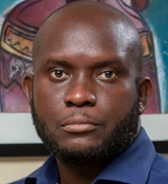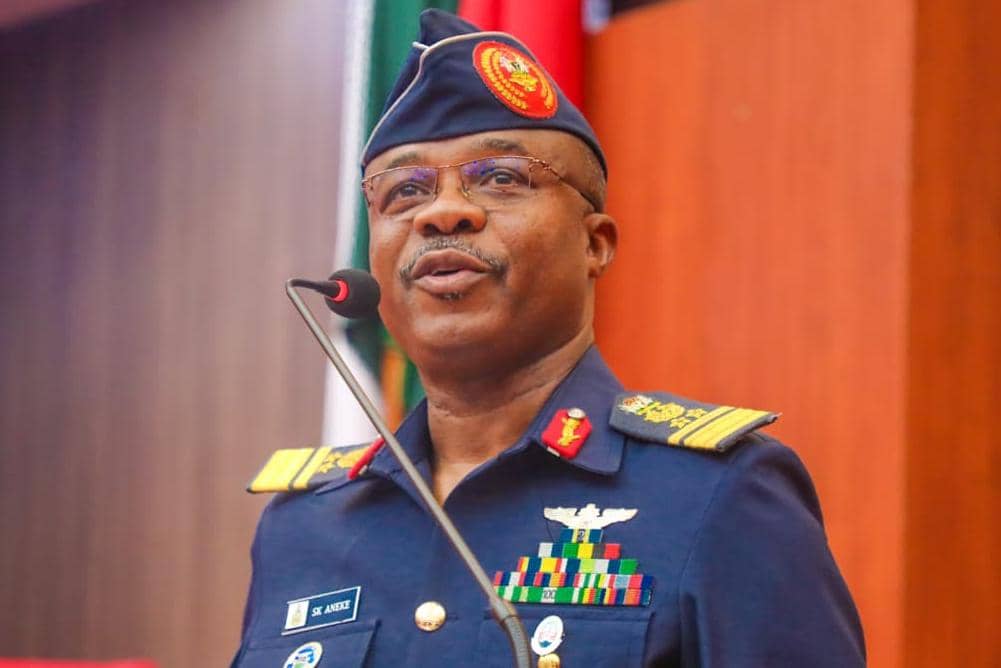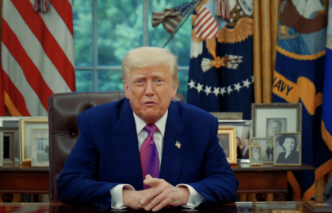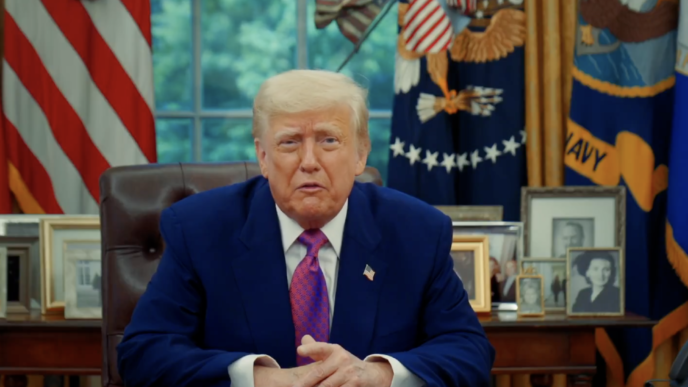Kelvin Aneke, chief of air staff
“If I didn’t have air supremacy, I wouldn’t be here,” (General Eisenhower, 1944)
At a time when the Nigerian govt has highlighted recent changes in the leadership of Nigeria’s military, in response to security concerns in Nigeria by United States (U.S.) President Donald Trump, the quote above by a former U.S. President Dwight D. Eisenhower, brings into context, the multilateral and multidimensional perspective that Air Marshall Sunday Kelvin Aneke, Nigeria’s Chief of the Air Staff, will have to adopt in resolving Nigeria’s security challenges. Given the regional nature of Nigeria’s security challenges, alongside the country’s contemporary situation, Aneke may require a strategic approach that includes political, economic and technology policy assessments in his leadership of the Nigerian Air Force (NAF), for air superiority towards national and regional security.
For context, Eisenhower’s comments were during his time as Supreme Commander of the Allied Expeditionary Force in Europe, while surveying the scene of D-Day landing of June 1944 at the beaches of Normandy, with his son Lt. John Eisenhower. The broader context refers to the Allied forces’ control of the skies, which was crucial for the success of the D-Day landings & the subsequent campaign in Europe during the second world war (WW II). Eisenhower’s identification of air supremacy as critical for the resolution of WW II, which not only has some connection with WW I, but also had combat theaters across Europe, Asia, Africa and North America, underscores the strategic role of AM Aneke and NAF in resolving insecurity in Nigeria and the Sahel region.
From the political perspective, the insecurity in Nigeria has been sustained for over a decade by terror groups, such as Islamic State West African Province (ISWAP) and Boko Haram,that are also operational in the Sahel region. The political discord arising from the handling of political situation in some West African countries by the Economic Community of West African States (ECOWAS) in 2023, led to the governments of Burkina Faso, Mali and Niger Republic withdrawing from ECOWAS and establishing the Alliance for Sahel States (AES). That the discord occurred when Nigeria chaired ECOWAS, put official strains on Nigeria’s relations with the AES countries, as well as the ability for efficient defense cooperation. Given the impact that the fall of Ghadaffi’s regime had on Nigeria’s security, the ongoing civil war in Sudan- which has by some accounts claimed about 400,000 lives, displaced over 12 million people and is described by U.S. Senior Advisor as ‘the world’s biggest humanitarian crisis’, may have significant implications on Nigeria’s security if not planned for. The seeming strain in Nigeria – U.S. relations due to these security concerns, further compounds the political factors.
Advertisement
Though Aneke is not a political appointee, he will have to apply measures that may mitigate some of the outcomes of these political constrains, for positive results. The leadership of AES countries have been struggling with security challenges since exiting ECOWAS. Though no more in ECOWAS, they still remain African Union (AU) countries. The AU African Peace and Security Architecture (APSA) provides a framework where with some dynamic diplomacy, NAF can work with AES in addressing some of their security challenges, to reduce the pressures on Nigeria. Bamako, the capital city of Mali has had supply of essential fuels and some commodities cut off, due to blockades from terror groups. The Burkinabe military has been taking casualties, same as in Niger Republic. It can be assumed that the Malian militarily government will be disposed to air defense support that will help dislodge the terror supply choke-hold on its capital city and other parts of the country. Similar expectation may exist in Burkina Faso and Niger. Therefore, Aneke may want to be creative with the APSA framework for joint air defense exercises. And the more secure AES countries are, the better they serve as Nigeria’s buffer with Sudan.
For Nigeria-U.S. relations, which are essential for technology and training, Nigeria’s Foreign Minister Yusuf Tuggar has recently confirmed that ‘What we are discussing is how we can collaborate to tackle security challenges that are in the interest of the entire planet’. In addition to these ongoing diplomatic efforts, Aneke, being an alumnus of U.S. Air War College (USAWC), should be able to leverage on past relationships in his time at USAWC, for personal diplomacy that can enhance Nigeria’s air superiority. In diplomacy, personal relationships have proven to enhance official bureaucratic diplomatic efforts. Given that US AFRICOM has identified security challenges in Sahel as threat to U.S. national security, Aneke can leverage on this U.S. national security concern for closer cooperation, complementary training and hardware support from U.S. Air Force.
On the economy, Aneke’s assessment may highlight an economic trend that also impacts defense relationships which foreign equipment partners, such as U.S. defense manufacturers. Nigeria’s GDP and exchange rate has declined from $574 billion and N200/$1 in 2014 to $243billion and N1,500/$1 in 2025, while debt servicing at 37 percent was highest component of the 2024 budget. Nigeria’s total 2025 defense budget was N3.10 trillion ($2.06 billion) out of which N376.78 billion ($251.18 million) was allocated to Nigerian Air Force. With one F-16 fighter jet costing up to $60 million, or about $100 million for an F-35 , the structural economic constraints Nigeria and NAF face in trying to procure and maintain foreign military equipment, becomes more contextualized. The necessity to essentially do more with less, makes domestic manufacturing of aviation spares and equipment a strategic necessity. Thankfully, there is a partnership history, when in 2016, Innoson Vehicle Manufacturing (IVM), Nigeria’s first indigenous vehicle manufacturing company was able to manufacture spares for some of NAF’s fighter jets, at a time when NAF could not procure spares abroad.
Advertisement
Furthermore, the observation by a former NAF Chief at the Chief of Defense Staff Joint Task Force Commanders Conference 2025 on the inability of NAF to internationally procure spares for its Mi attack helicopters due to geopolitics, highlights the need for the sustenance and expansion of partnerships between NAF and IVM Nigeria, for sustainable peace and security. Given Nigeria’s economic situation, additional comments by the former NAF chief that $11 million is required for retrofitting a single attack helicopter, demands a medium-to-long term research and development (R&D) contract and partnership arrangement with domestic companies such as IVM, whereby within five years, most of these helicopters can be substantially retrofitted in Nigeria, to support sustainable NAF operations.
The U.S., Canada, Europe, Brazil and other leading air defense countries have their military personnel working closely with private companies, both in and out of uniform. Companies such as Boeing Defense, Space & Security,Bombardier Defense, Lockheed Martin, Embraer Defense and Security and Airbus Defence and Space have retired senior military and air force officers as part of their leadership.NAF should therefore consider acquiring some minimal stakes in Innoson Group, Caverton Aviation/Helicopters (which has a working relationship with NAF) and any relevant company. Also, retired NAF senior officials should be engaged by these companies, as a means to sustain knowledge production, research & development, and strategic collaborations. Dual purpose technologies from Innoson & Caverton and their dividends, will provide return on investment for NAF’s investment in these companies. A domestic example of this can be seen with NNPCL owning minimal stakes in Dangote Petrochemical Refinery.
For technology policy, which is also related to the need for sustainable development of the local defense sector, artificial intelligence (AI) is necessary. Given the role of intelligence and data for precision and effectiveness, advanced aviation defense and air combat superiority are increasingly driven by AI, be it for fighter jets or drones. While the African Union has its Continental Artificial Intelligence Strategy of 2024, Aneke may want to pay close attention to the AI policy efforts of government as led by Dr. Bosun Tijani, Nigeria’s Minister for Communications, Innovation & Digital Economy. In addition to Nigeria’s National Artificial Intelligence Strategy of 2024, there is the National Digital Economy and E-Governance Bill, 2025 that will have implications for AI governance, and emerging roles for agencies such as Nigerian Communications Commission (NCC) and National Information Technology Development Agency (NITDA). There is also the 3 Million Technical Talent (3MTT) programme for building a large talent pool, including in AI/Robotics. Aneke working closely with Tijani can ensure that AI governance supports NAF, while the top AI talent from 3MMT can be made available to NAF.
A close working relationship is also essential for regional security and data access in the Sahel region. As many of these terror groups use technology and the internet, AI becomes key for multilateral intelligence and information processing, especially as their unconventional combat procedures present unique challenges. The West Africa Telecommunications Regulators Assembly (WATRA), with headquarters in Abuja,is the official multilateral platform for telecommunications and ICT regulators across West Africa, wherein Nigeria is represented by NCC, under the supervision of Dr. Tijani. Given that most of internet and electronic communication is from telecoms companies, a nudge via Tijani towards regional data access and collation will support the development of large language models (LLMs) with more specificity to the Sahel region. This will enhance the precision of data, AI modelling and AI inference, which is essential for both economic planning, ICT development, as well as for effective and efficient precision aviation defence purposes. Dual-purpose AI usage, essentially.
Advertisement
This policy nudge towards regional data access for more representative LLMs is not only a win-win for all countries in the region that includes AES countries, but is also in accordance with the objectives of WATRA. In addition to its regional regulation and development role in telecoms and ICT, WATRA operates under the legal framework of the ECOWAS Treaty, the Supplementary Act on Telecommunications and ICT, and the Protocol on the Establishment of WATRA. It harmonises regional regulatory framework and policies for telecoms and ICT; develops and implements the West African Common Regulatory Framework for Telecommunications and ICT; coordinates and harmonizes the national policies and regulations of the member states to ensure regional consistency and compatibility; promotes regional development and integration of telecoms and ICT infrastructure and services; and fosters regional cooperation and collaboration among the member countries and other regional and international organizations in the telecoms and ICT.
The NAF under Aneke should also pay closer attention to some of the better AI startups, with the aim of incorporating or acquiring the more promising ones that have aviation and precision related uses. This will also be complemented by increased interest in cybersecurity startups, given the need to enhance digital protection of an aviation defense system with expanded digital technology use. Such a policy approach with civilian developed technology companies will not be out of place, given similar practice by leading defense countries.
Air superiority alone is of course not enough, as collaboration is needed. General Eisenhower and his son who made the air superiority assessment at Normandy in 1944 were both army infantry officers. Eisenhower as Supreme Commander also worked with the naval forces. What however stands out is their appreciation of the strategic role of air superiority in very intense conflict situations, such as WW II. In the Asian sector of the war, the deployment of the atomic bombs that brought the war to an end in 1945 was done by today’s United States Air Force (USAF). In recent weeks, Turkiye has been lobbying western powers for approval to purchase used Eurofighter Typhoon jets, while Saudi Arabia has been lobbying the U.S. for F-35 jet sales- all underscoring the contemporary relevance of air superiority. What the Eisenhowers highlighted in 1944 was an affirmation of the strategic and critical role of air superiority in conflicts that are both multilateral and multidimensional- similar to contemporary security challenges in Nigeria and the Sahel region. Nigeria is in challenging regional environment, and cannot change its physical geography.
Aviators by their training, have elevated, panoramic and strategic perspectives to issues. The Nigerian Air Force under Air Marshall Aneke is bound to have a regional perspective to security challenges, be it political, economic and technological. For political factors, complementing ongoing government diplomatic efforts with personal diplomacy as a USAWC alumnus, should secure increased equipment, collaboration and training support from the U.S., while also harnessing avenues within the African Peace and Security Architecture for increased defense cooperation with countries in the Sahel region. A trend analysis of Nigeria’s economic fundamentals should make Aneke consolidate previous manufacturing, maintenance and training relationships with domestic companies such as Innoson Vehicle Motors and Caverton Aviation, for economic sustainability and dual-purpose technologies. Closer collaboration with the communications ministry will support the development of Sahel region large language models, for the use of AI that supports both economic development and precision air combat superiority. Just as the USA and Eisenhower used air superiority to bring an end to the Second World War, and usher in era of unprecedented global economic prosperity and innovation, Nigeria needs air superiority for regional peace and development. With Aneke, hopefully, the expectation for regional peace, security and development is responsibility well placed.
Advertisement
Uwanaka writes from African University of Science and Technology, Abuja. [email protected]
Advertisement
Views expressed by contributors are strictly personal and not of TheCable.





